Photo: Bettmann / Contributor / Getty Images
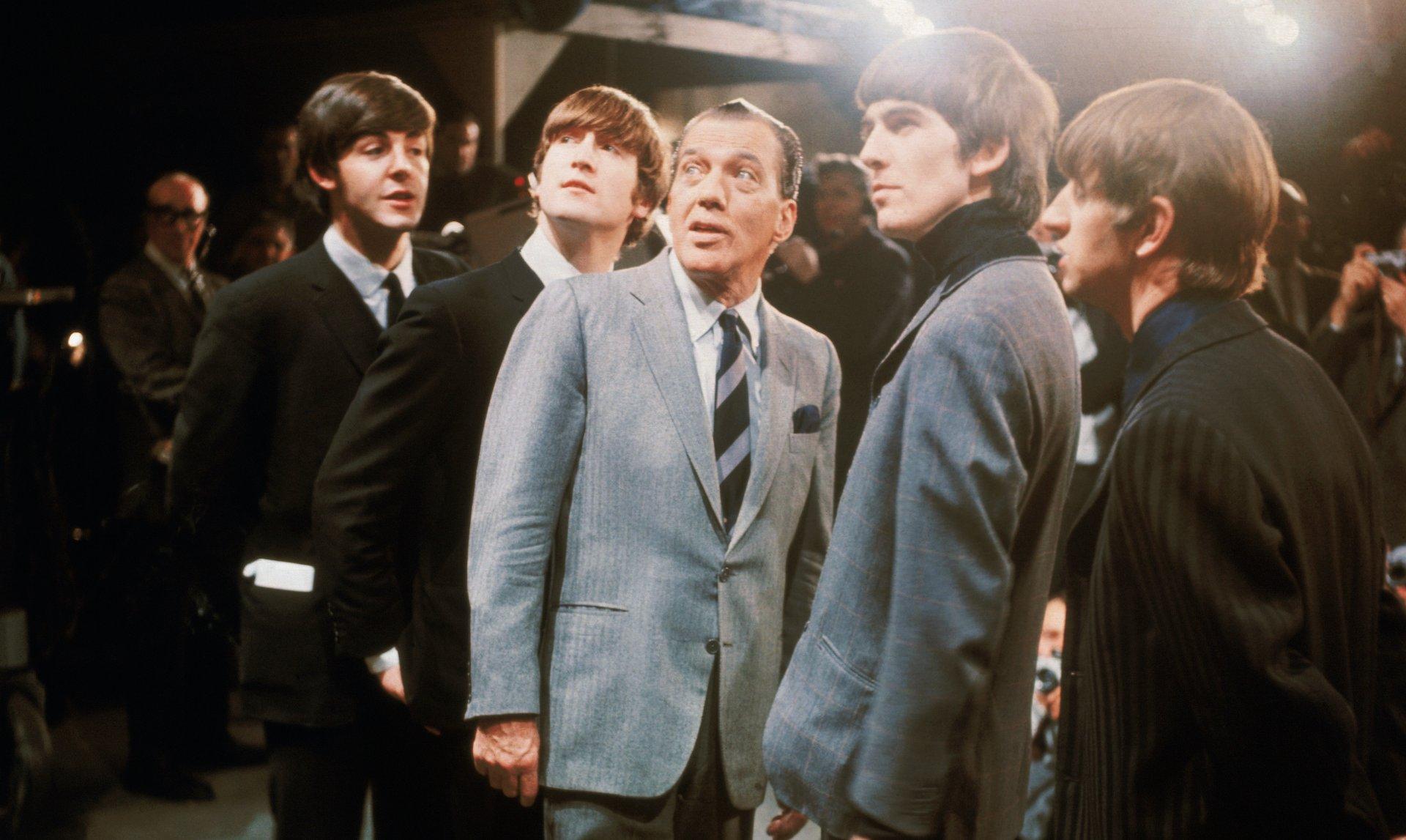
news
On This Day In Music: The Beatles Debut On "The Ed Sullivan Show," A Big Bang Event For Rock History
Fifty-eight years ago today, a Chesterfield-suited Fab Four made their American TV debut before a battalion of hysterical girls — and a whole generation of future rockers. Nothing would ever be the same.
The Beatles' debut U.S. performance on "The Ed Sullivan Show" may be permanently burned into the public consciousness, but what happened around it is almost forgotten.
First, the crustaceous Sullivan reports of a wire from Elvis Presley and Colonel Tom Parker "wishing them a tremendous success in our country," which is enough to induce chills — it's the passing of the torch! Then, the wet blanket: to the audible chagrin of the girls in the audience, they've got to run an ad for Aero Shave shaving cream.
"It keeps drenching your beard while others dry out!" a chipper voiceover reports, oblivious to the Big Bang that's about to transpire. "New shoes? No! New shoe polish!" crows an ad man for Griffin Liquid Wax. Even today, the tension is almost unbearable. And then, with that indelible shout of "Ladies and gentlemen — the Beatles!" — instantly drowned out by shrieks, natch — "All My Loving" comes burbling forth like a freshwater stream.
Fifty-eight years after that debut appearance on Feb. 9, 1964, it's difficult to quantify (especially if you weren't born yet) how consequential this moment was. We've all heard the clichés about the hair, the suits, the bows, the "Sorry Girls, He's Married" caption above John Lennon's head. We're familiar with the refrain that the Beatles’ performance healed the nation after JFK’s assassination, and read the opening pages of a million rock bios comparing it to a lightning storm, a hurricane, an earthquake.
But watching the clip today, one notices the little details. A squinting Lennon, blind as a bat without his glasses, letting loose an approving "Yeah!"; Paul McCartney lapping up the female attention; Ringo Starr in his goofy, loveable glory; George Harrison, the youngest, looking a touch removed. Their individual personalities are immediately apparent — as magnetic as Buddy Holly was on "Ed Sullivan" back in 1957, few were compelled to ponder the inner lives of the Crickets.
No, each Beatle was as memorable as any other, telegraphing the role they'd play in our lives forevermore. Paul fully inhabits Meredith Wilson's The Music Man show tune "'Til There Was You," which both foreshadows his music-hall-style gems from "When I'm Sixty-Four" to "Your Mother Should Know" and Lennon's future, withering putdowns of McCartney's "granny-music s***."
"She Loves You" follows. If you're among those who never need to hear that song again, consider how its all-hook barrage invented entire power-pop, indie rock and boy band lineages — including everyone from the Hollies to Teenage Fanclub and BTS.
And then — good God — imagine being magician Fred Kaps, who had to follow that act with playing card and salt shaker tricks. This isn't the forum to roast him (after all, his performance was pre-taped) but the juxtaposition between the two acts — and the world of kids and adults — is almost unbearable to watch.
The cast of Oliver then arrives to gallivant around and sing "As Long As He Needs Me." Bowtied impressionist Frank Gorshin shows up with over-the-top impersonations of Dean Martin and Anthony Quinn. A feather-boaed Tessie O'Shea tickles banjo strings and chirps a selection from the musical The Girl Who Came to Supper. Mitski McCall and Charli Brill chew the scenery in a dorky comedy skit.
The magic barrels back into the last half of the show, as the Fabs bang out "I Saw Her Standing There" and "I Want to Hold Your Hand." Despite the shoddy video quality — how did this look like it was taped on the moon a mere five years before the events of Get Back? — the lads leap out of your YouTube browser.
"You've been a fine audience," Sullivan says testily at the show's end. "Despite severe provocation." Fifty-eight years later, we are all that audience — and so will our kids, and our kids' kids, and so on.
Whether or not you're a Beatles fan, take their debut Ed Sullivan appearance out of the closet of history and really sit with it — in all its characterizations and juxtapositions and moments of bliss and awkwardness. Try to envisage a world where it never happened. Spoiler alert: it'd be as dull as salt. This Beatles performance kicked off everything.
There's Not Much Left To Reveal About The Beatles' End. Let's Use The Get Back Doc As A Manual For Moving Forward.
Explore More History-Making Moments In Music
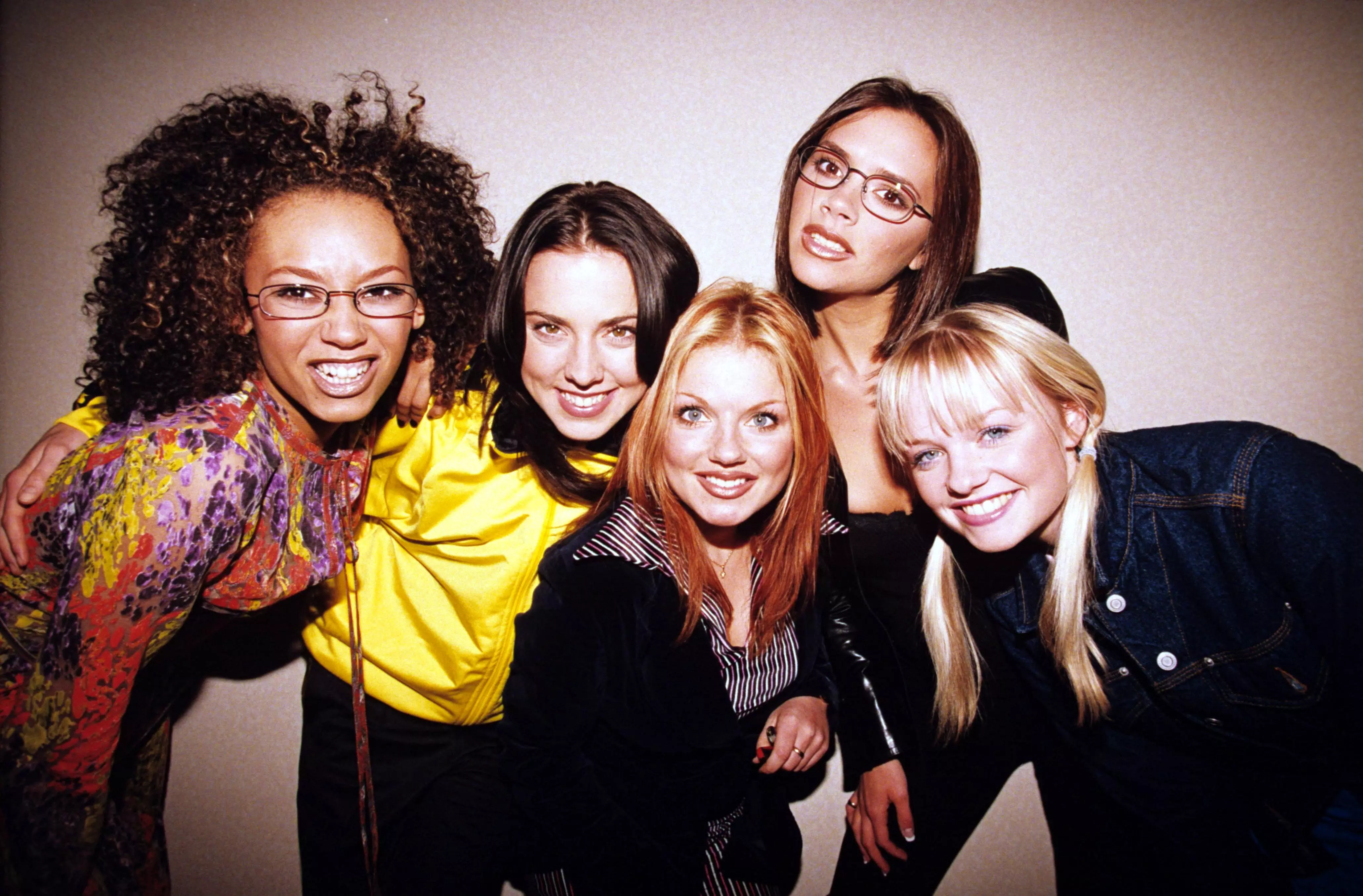
On This Day In Music: Spice Girls Release "Wannabe," Their Iconic Debut Single
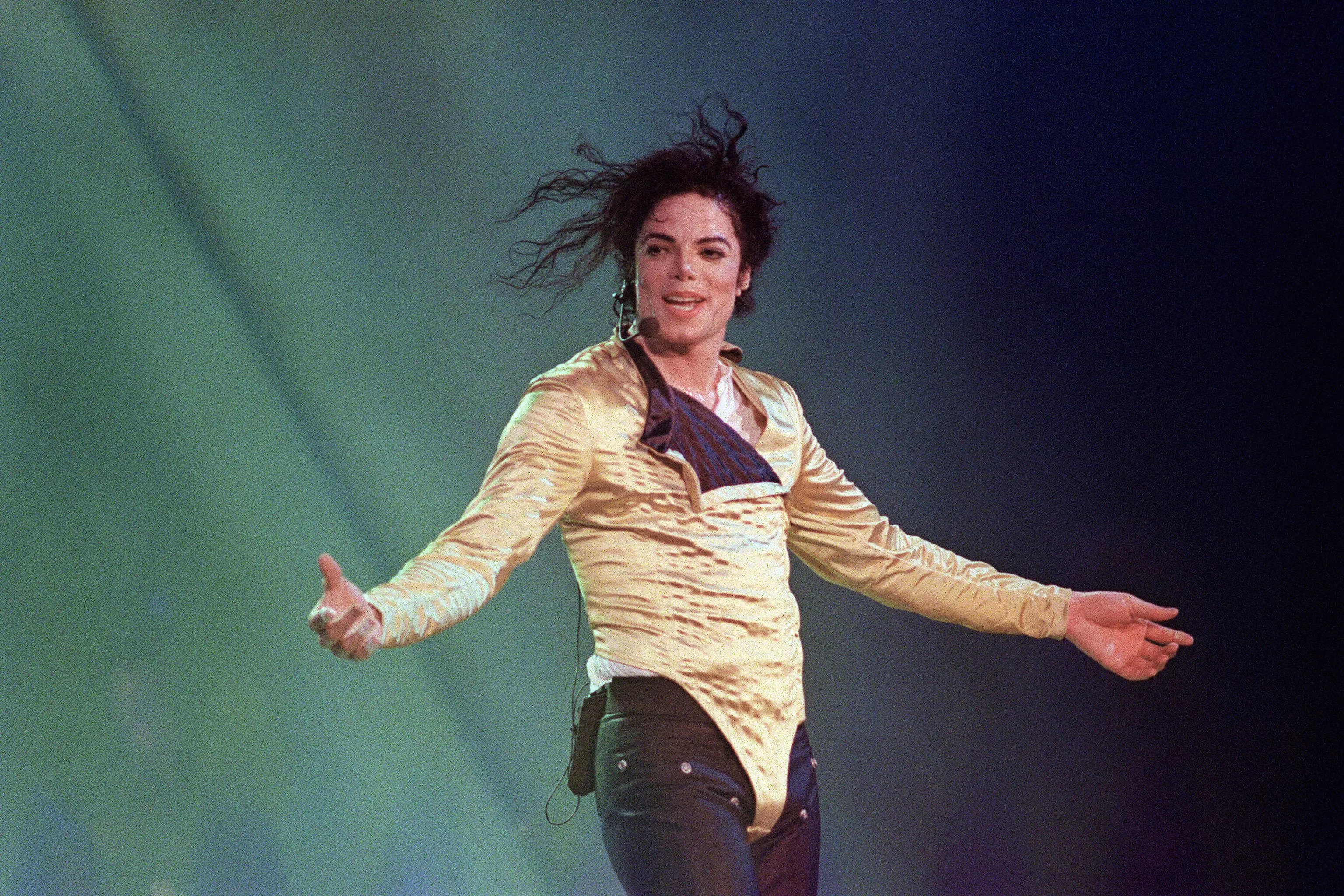
On This Day In Music: Michael Jackson Passes Away In Los Angeles At Age 50
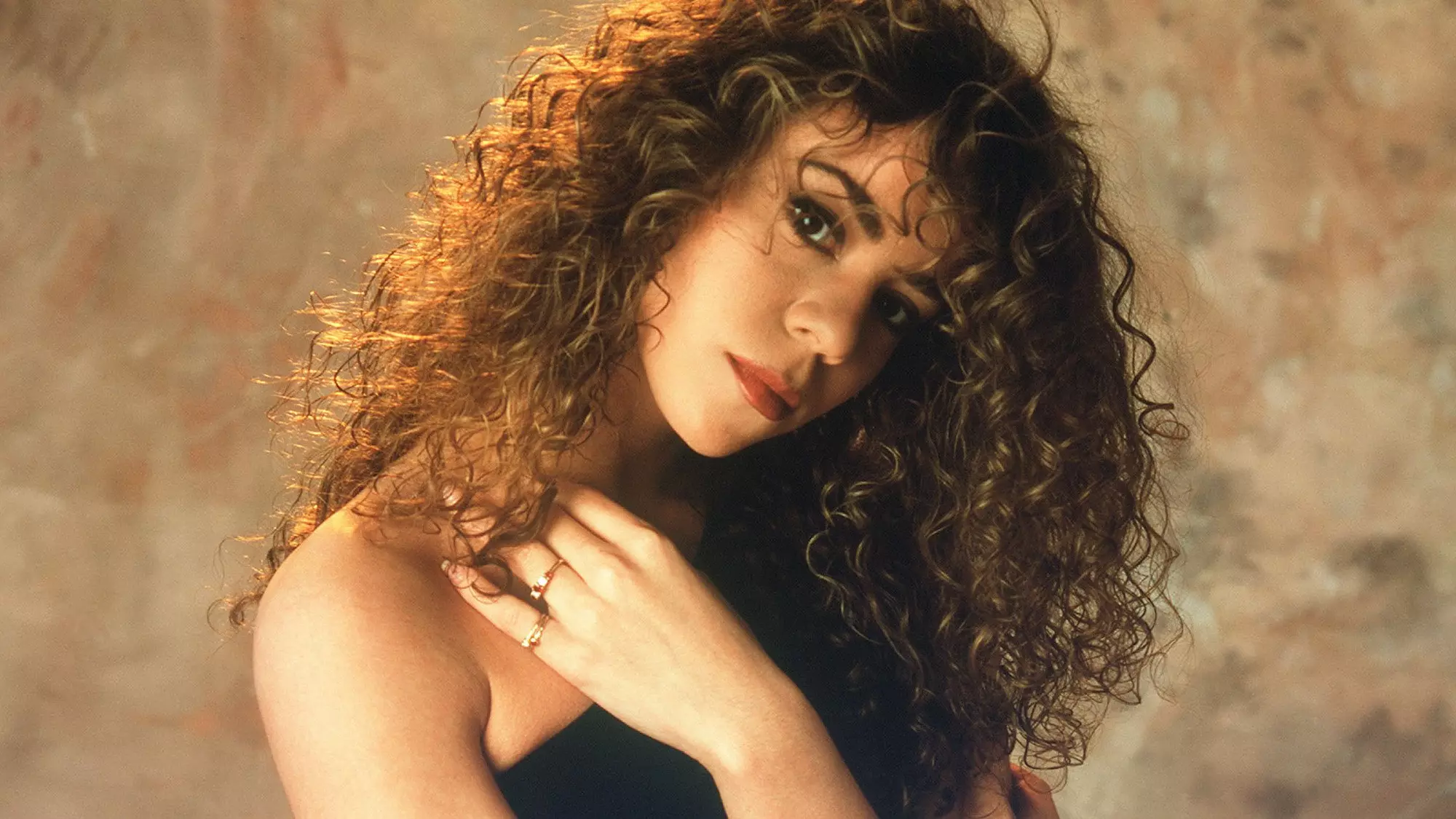
On This Day In Music: Mariah Carey Releases Her Self-Titled Debut Album
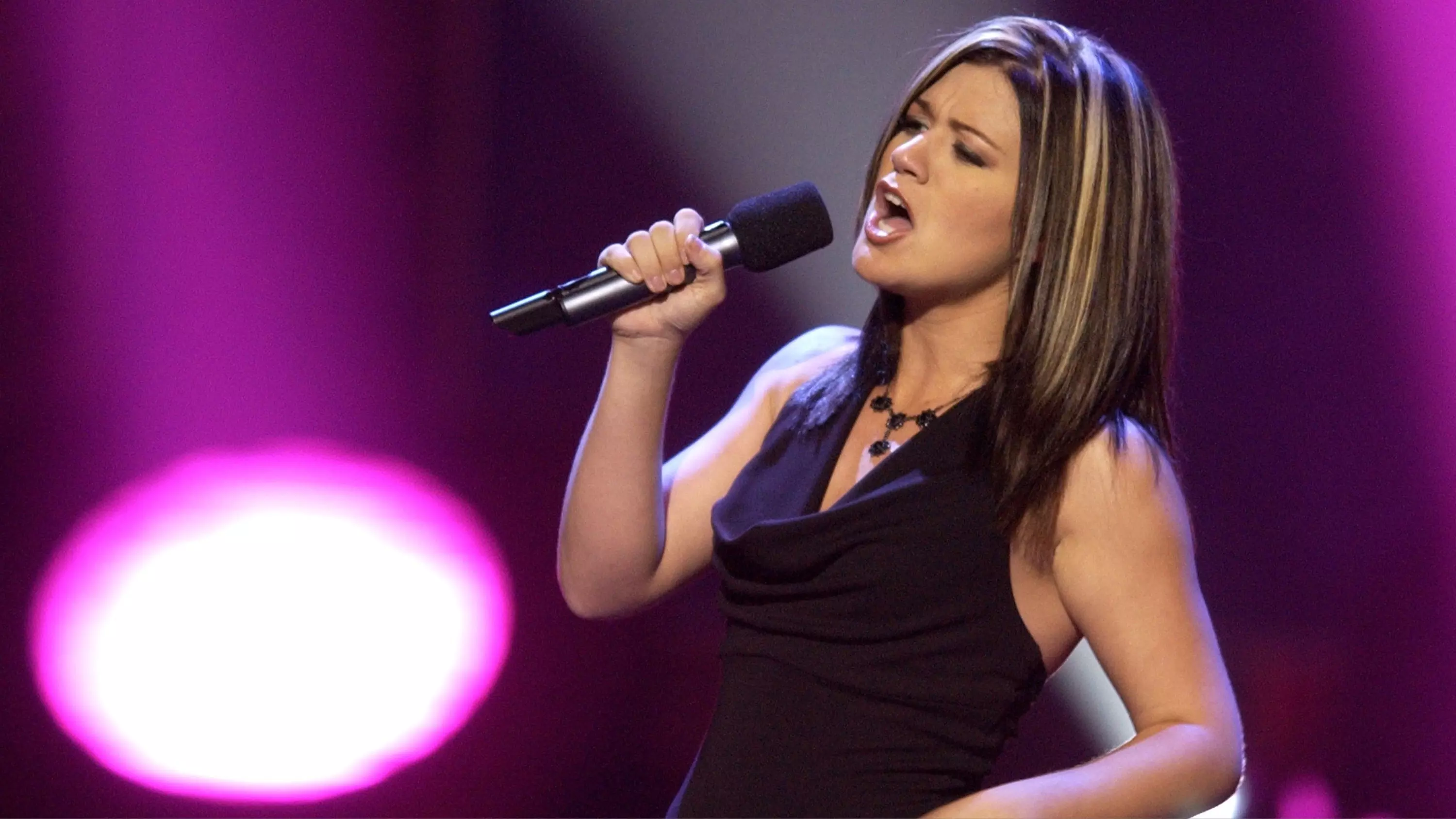
On This Day In Music: "American Idol" Premieres On Fox Network
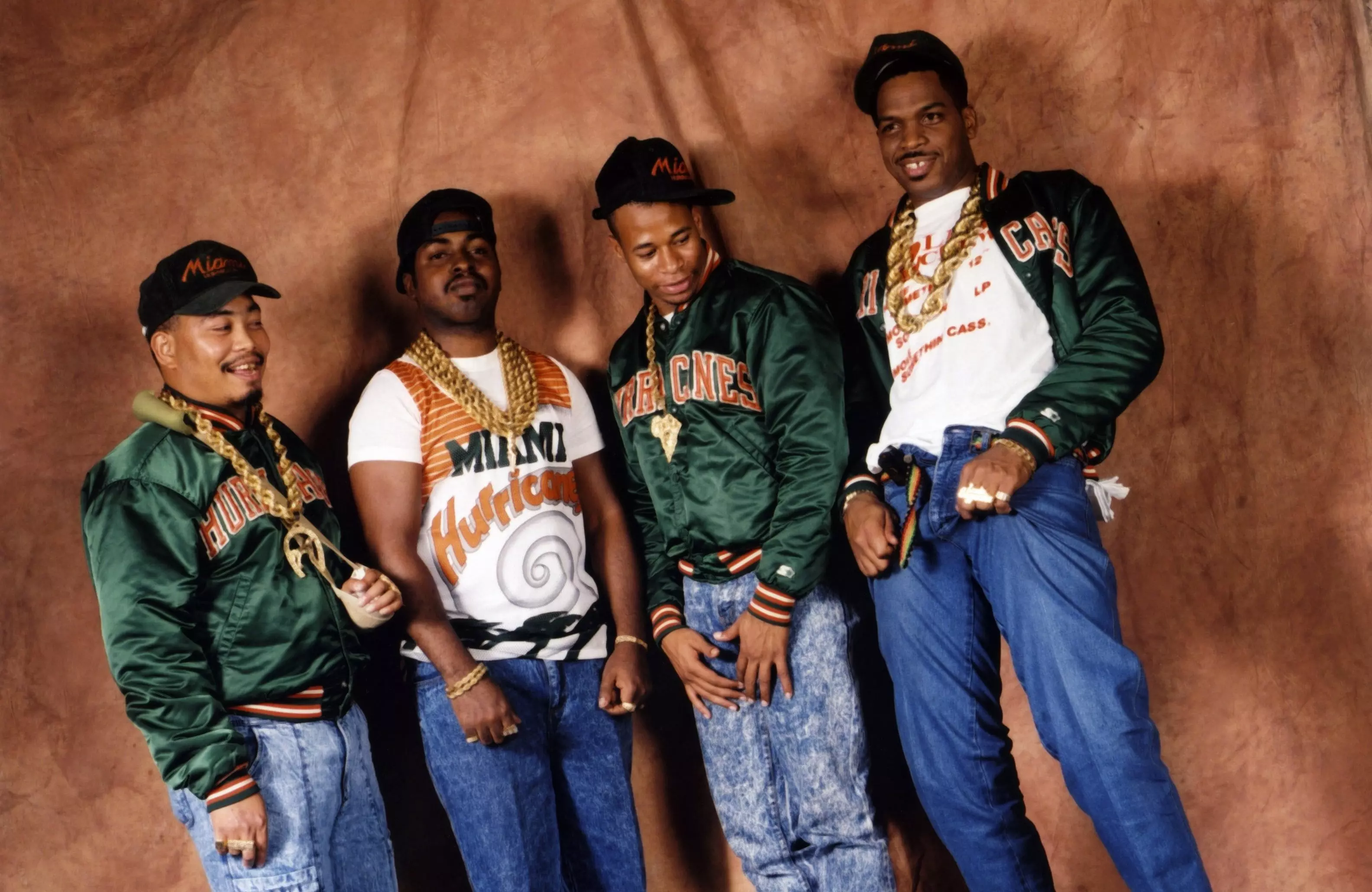
On This Day In Music: 2 Live Crew's 'As Nasty As They Wanna Be' Becomes First Album Declared Legally Obscene, Anticipates First Amendment Cases
.jpg)
Photo: Yoko Ono
list
5 Reasons John Lennon's 'Mind Games' Is Worth Another Shot
John Lennon's 1973 solo album 'Mind Games' never quite got its flowers, aside from its hit title track. A spectacular 2024 remix and expansion is bound to amend its so-so reputation.
As the train of Beatles remixes and expansions — solo or otherwise — chugs along, a fair question might come to mind: why John Lennon's Mind Games, and why now?
When you consider some agreed-upon classics — George Harrison's Living in the Material World, Ringo Starr's Ringo — it might seem like it skipped the line. Historically, fans and critics have rarely made much of Mind Games, mostly viewing it as an album-length shell for its totemic title track.
The 2020 best-of Lennon compilation Gimme Some Truth: The Ultimate Mixes featured "Mind Games," "Out the Blue," and "I Know (I Know)," which is about right — even in fanatical Lennon circles, few other Mind Games tracks get much shine. It's hard to imagine anyone reaching for it instead of Plastic Ono Band, or Imagine, or even the controversial, semi-outrageous Some Time in New York City.
Granted, these largely aren't A-tier Lennon songs — but still, the album's tepid reputation has little to do with the material. The original Mind Games mix is, to put it charitably, muddy — partly due to Lennon's insecurity about his voice, partly just due to that era of recordmaking.
The fourth-best Picasso is obviously still worth viewing. But not with an inch of grime on your glasses.
The Standard Deluxe Edition. Photo courtesy of Universal Music Group
That's all changed with Mind Games: The Ultimate Collection — a fairly gobsmacking makeover of the original album, out July 12. Turns out giving it this treatment was an excellent, long-overdue idea — and producer Sean Ono Lennon, remixers Rob Stevens, Sam Gannon and Paul Hicks were the best men for the job. Outtakes and deconstructed "Elemental" and "Elements" mixes round out the boxed set.
It's not that Mind Games: The Ultimate Collection reveals some sort of masterpiece. The album's still uneven; it was bashed out at New York's Record Plant in a week, and it shows. But that's been revealed to not be its downfall, but its intrinsic charm. As you sift through the expanded collection, consider these reasons you should give Mind Games another shot.
The Songs Are Better Than You Remember
Will deep cuts like "Intuition" or "Meat City" necessarily make your summer playlist? Your mileage may vary. However, a solid handful of songs you may have written off due to murky sonics are excellent Lennon.
With a proper mix, "Aisumasen (I'm Sorry)" absolutely soars — it's Lennon's slow-burning, Smokey Robinson-style mea culpa to Yoko Ono. "Bring On the Lucie (Freda Peeple)" has a rickety, communal "Give Peace a Chance" energy — and in some ways, it's a stronger song than that pacifist classic.
And on side 2, the mellow, ruminative "I Know (I Know)" and "You Are Here" sparkle — especially the almost Mazzy Star-like latter tune, with pedal steel guitarist "Sneaky" Pete Kleinow (of Flying Burrito Brothers fame) providing abundant atmosphere.
And, of course, the agreed-upon cuts are even better: "Mind Games" sounds more celestial than ever. And the gorgeous, cathartic "Out the Blue" — led by David Spinozza's classical-style playing, with his old pal Paul McCartney rubbing off on the melody — could and should lead any best-of list.
The Performances Are Killer
Part of the fun of Mind Games: The Ultimate Collection is realizing how great its performances are. They're not simply studio wrapping paper; they capture 1970s New York's finest session cats at full tilt.
Those were: Kleinow, Spinozza, keyboardist Ken Ascher, bassist Gordon Edwards, drummer Jim Keltner (sometimes along with Rick Marotta), saxophonist Michael Brecker, and backing vocalists Something Different.
All are blue-chip; the hand-in-glove rhythm section of Edwards and Keltner is especially captivating. (Just listen to Edwards' spectacular use of silence, as he funkily weaves through that title track.)
The hardcover book included in Mind Games: The Ultimate Collection is replete with the musicians' fly-on-the-wall stories from that week at the Record Plant.
"You can hear how much we're all enjoying playing together in those mixes," Keltner says in the book, praising Spinozza and Gordon. "If you're hearing John Lennon's voice in your headphones and the great Kenny Ascher playing John's chords on the keys, there's just no question of where you're going and how you're going to get there."
It Captures A Fascinating Moment In Time
"Mind Games to me was like an interim record between being a manic political lunatic to back to being a musician again," Lennon stated, according to the book. "It's a political album or an introspective album. Someone told me it was like Imagine with balls, which I liked a lot."
This creative transition reflects the upheaval in Lennon's life at the time. He no longer had Phil Spector to produce; Mind Games was his first self-production. He was struggling to stay in the country, while Nixon wanted him and his message firmly out.
Plus, Lennon recorded it a few months before his 18-month separation from Ono began — the mythologized "Lost Weekend" that was actually a creatively flourishing time. All of this gives the exhaustive Mind Games: The Ultimate Collection historical weight, on top of listening pleasure.
"[It's important to] get as complete a revealing of it as possible," Stevens, who handled the Raw Studio Mixes, tells GRAMMY.com. "Because nobody's going to be able to do it in 30 years."
John Lennon and Yoko Ono in Central Park, 1973. Photo: Bob Gruen
Moments Of Inspired Weirdness Abound
Four seconds of silence titled the "Nutopian International Anthem." A messy slab of blues rock with refrains of "Fingerlickin', chicken-pickin'" and "Chickin-suckin', mother-truckin'." The country-fried "Tight A$," basically one long double entendre.
To put it simply, you can't find such heavy concentrates of Lennonesque nuttiness on more commercial works like Imagine. Sometimes the outliers get under your skin just the same.
It's Never Sounded Better
"It's a little harsh, a little compressed," Stevens says of the original 1973 mix. "The sound's a little bit off-putting, so maybe you dismiss listening to it, in a different head. Which is why the record might not have gotten its due back then."
As such, in 2024 it's revelatory to hear Edwards' basslines so plump, Keltner's kick so defined, Ascher's lines so crystalline. When Spinozza rips into that "Aisumasen" solo, it absolutely penetrates. And, as always with these Lennon remixes, the man's voice is prioritized, and placed front and center. It doesn't dispose of the effects Lennon insecurely desired; it clarifies them.
"I get so enthusiastic," Ascher says about listening to Mind Games: The Ultimate Collection. "I say, 'Well, that could have been a hit. This could have been a hit. No, this one could have been a hit, this one." Yes is the answer.

Photo: Archive Photos/Getty Images
list
'A Hard Day's Night' Turns 60: 6 Things You Can Thank The Beatles Film & Soundtrack For
This week in 1964, the Beatles changed the world with their iconic debut film, and its fresh, exuberant soundtrack. If you like music videos, folk-rock and the song "Layla," thank 'A Hard Day's Night.'
Throughout his ongoing Got Back tour, Paul McCartney has reliably opened with "Can't Buy Me Love."
It's not the Beatles' deepest song, nor their most beloved hit — though a hit it was. But its zippy, rollicking exuberance still shines brightly; like the rest of the oldies on his setlist, the 82-year-old launches into it in its original key. For two minutes and change, we're plunged back into 1964 — and all the humor, melody, friendship and fun the Beatles bestowed with A Hard Day's Night.
This week in 1964 — at the zenith of Beatlemania, after their seismic appearance on "The Ed Sullivan Show" — the planet received Richard Lester's silly, surreal and innovative film of that name. Days after, its classic soundtrack dropped — a volley of uber-catchy bangers and philosophical ballads, and the only Beatles LP to solely feature Lennon-McCartney songs.
As with almost everything Beatles, the impact of the film and album have been etched in stone. But considering the breadth of pop culture history in its wake, Fab disciples can always use a reminder. Here are six things that wouldn't be the same without A Hard Day's Night.
All Music Videos, Forever
Right from that starting gun of an opening chord, A Hard Day's Night's camerawork alone — black and white, inspired by French New Wave and British kitchen sink dramas — pioneers everything from British spy thrillers to "The Monkees."
Across the film's 87 minutes, you're viscerally dragged into the action; you tumble through the cityscapes right along with John, Paul, George, and Ringo. Not to mention the entire music video revolution; techniques we think of as stock were brand-new here.
According to Roger Ebert: "Today when we watch TV and see quick cutting, hand-held cameras, interviews conducted on the run with moving targets, quickly intercut snatches of dialogue, music under documentary action and all the other trademarks of the modern style, we are looking at the children of A Hard Day's Night."
Emergent Folk-Rock
George Harrison's 12-string Rickenbacker didn't just lend itself to a jangly undercurrent on the A Hard Day's Night songs; the shots of Harrison playing it galvanized Roger McGuinn to pick up the futuristic instrument — and via the Byrds, give the folk canon a welcome jolt of electricity.
Entire reams of alternative rock, post-punk, power pop, indie rock, and more would follow — and if any of those mean anything to you, partly thank Lester for casting a spotlight on that Rick.
The Ultimate Love Triangle Jam
From the Byrds' "Triad" to Leonard Cohen's "Famous Blue Raincoat," music history is replete with odes to love triangles.
But none are as desperate, as mannish, as garment-rending, as Derek and the Dominoes' "Layla," where Eric Clapton lays bare his affections for his friend Harrison's wife, Pattie Boyd. Where did Harrison meet her? Why, on the set of A Hard Day's Night, where she was cast as a schoolgirl.
Debates, Debates, Debates
Say, what is that famous, clamorous opening chord of A Hard Day's Night's title track? Turns out YouTube's still trying to suss that one out.
"It is F with a G on top, but you'll have to ask Paul about the bass note to get the proper story," Harrison told an online chat in 2001 — the last year of his life.
A Certain Strain Of Loopy Humor
No wonder Harrison got in with Monty Python later in life: the effortlessly witty lads were born to play these roles — mostly a tumble of non sequiturs, one-liners and daffy retorts. (They were all brought up on the Goons, after all.) When A Hard Day's Night codified their Liverpudlian slant on everything, everyone from the Pythons to Tim and Eric received their blueprint.
The Legitimacy Of The Rock Flick
What did rock 'n' roll contribute to the film canon before the Beatles? A stream of lightweight Elvis flicks? Granted, the Beatles would churn out a few headscratchers in its wake — Magical Mystery Tour, anyone? — but A Hard Day's Night remains a game-changer for guitar boys on screen.
The best part? The Beatles would go on to change the game again, and again, and again, in so many ways. Don't say they didn't warn you — as you revisit the iconic A Hard Day's Night.
Explore The World Of The Beatles
.webp)
5 Reasons John Lennon's 'Mind Games' Is Worth Another Shot

'A Hard Day's Night' Turns 60: 6 Things You Can Thank The Beatles Film & Soundtrack For

6 Things We Learned From Disney+'s 'The Beach Boys' Documentary

5 Lesser Known Facts About The Beatles' 'Let It Be' Era: Watch The Restored 1970 Film

Catching Up With Sean Ono Lennon: His New Album 'Asterisms,' 'War Is Over!' Short & Shouting Out Yoko At The Oscars
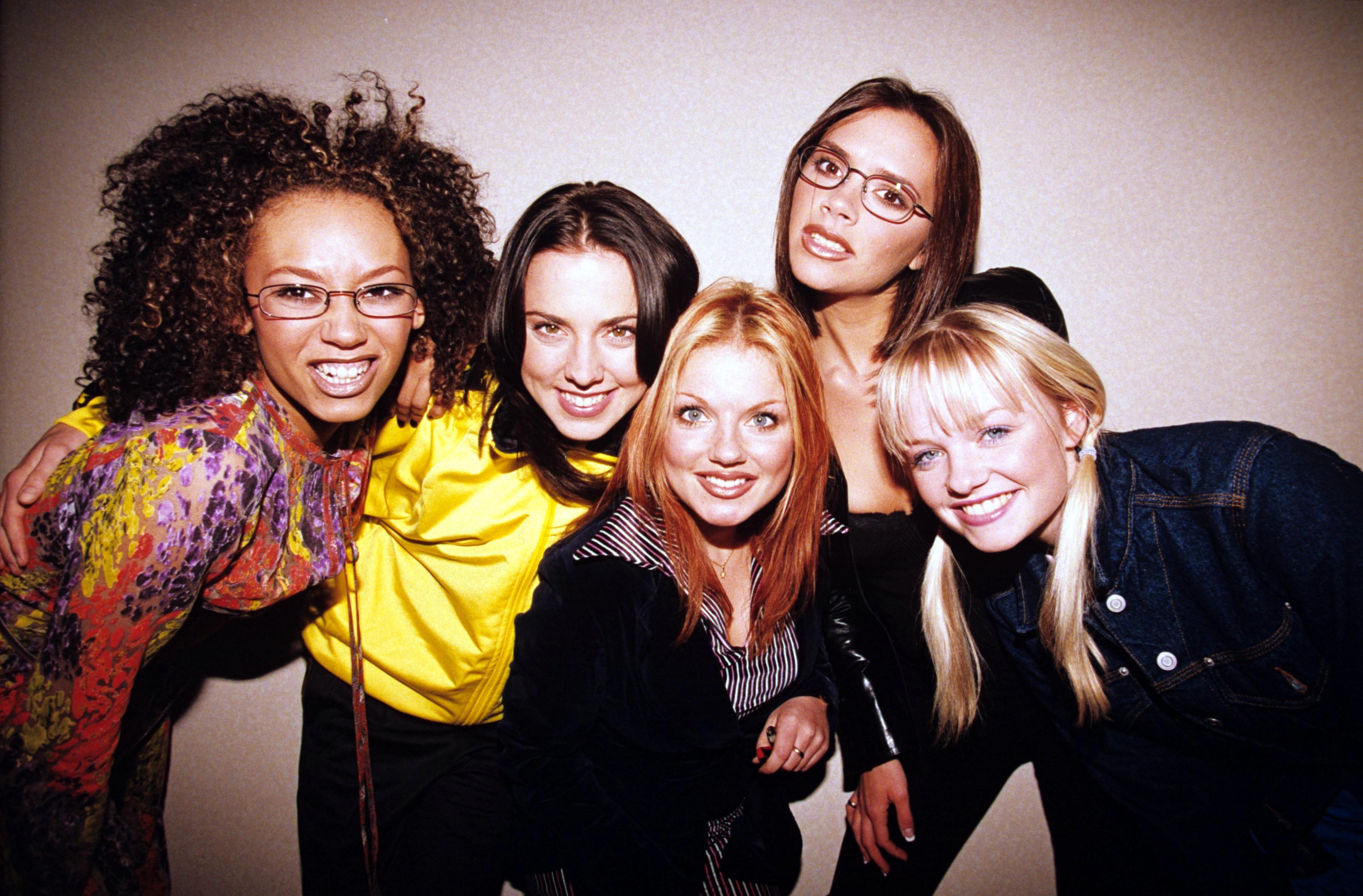
Photo: Brian Rasic
news
On This Day In Music: Spice Girls Release "Wannabe," Their Iconic Debut Single
In 1996, the Spice Girls' spirited anthem not only dominated the charts and airwaves, but also put girl groups on the map. If you want to uncover the magic behind their meteoric rise, "you gotta listen carefully…"
Who could have guessed that a track recorded in under an hour would become an iconic celebratory anthem of female empowerment and friendship? It seems like the Spice Girls did.
The music industry was ripe for a bouncy pop hit in 1996, and "Wannabe" entered the arena with undeniable power. With an infectious blend of dance-pop and hip-hop, as well as catchy lyrics promoting female empowerment, "Wannabe" carried on the spirit of the early '90s riot grrrl movement while delivering a radio-friendly bop.
The Spice Girls' debut single proved that the girl group wouldn't be wannabe stars for long. The song spent four weeks on the Billboard Hot 100, and was certified platinum multiple times in the U.S., United Kingdom, Australia, and several other countries.
Producer Richard Stannard told BBC that the now-canonical British quintet battled Virgin Records to release "Wannabe" as their debut single (executives pushed for "Love Thing"). While both songs would appear on Spice, the Spice Girls' 1996 debut album, the group's instinct and confidence paid off. Twenty-eight years later, "Wannabe" remains an iconic pop song and one of the Spice Girls' most enduring tracks.
While the Spice Girls may have seemed like an overnight success in America, its members had been working their way through the British music scene for years. In March 1994, hundreds of aspiring stars crammed into Dancework Studios in London after an advertisement was posted in The Stage magazine looking for the next girl band.
The groups were randomly split up, taught a dance routine, and then had to perform the song for talent managers and father-son duo, Bob and Chris Herbert. One month later, with 10 girls left, the initial final four — Melanie "Scary Spice" Brown, Melanie "Sporty Spice" Chisholm, Victoria "Posh Spice" Adams, and Geri "Ginger Spice" Halliwell — were all chosen to form the final group with a then-17-year-old Michelle Stephenson. The group moved into a home together, where they received additional dance training and vocal coaching. However, Michelle was soon replaced by Emma "Baby Spice" Bunton, completing the lineup of Spice Girls that as we know them today.
"Of course I regret I'm not a multi-millionaire like them. But at the time I left the group I knew I was doing the right thing and I still think it was the right thing," Stephenson told The Mirror in 2001. "It wasn't my kind of music and they were not living the lifestyle I wanted."
The group's charisma and corresponding archetypal personalities were put on display in the music video for "Wannabe." The iconic, single-take music video shot in London’s Midland Grand Hotel (now St. Pancras Renaissance Hotel), became as legendary as the track itself. In 2015, Billboard included the video for "Wannabe" in a list of 10 iconic girl group videos, solidifying the video's lasting impression.
Directed by Johan Camitz, the video was the perfect visual introduction to the group: Ginger Spice unapologetically dances through the hotel in a sparkly Union Jack leotard alongside Scary Spice, whose bold persona is conveyed through carefree dances that included whipping her hair around. The group's distinct, playful personalities remained a key selling point used throughout their career.
"Wannabe" producers Matt Rowe and Stannard first saw the Spice Girls at a showcase, and the duo instantly knew that they had the next group of superstars. Soon after, Rowe and Stannard worked with the group to produce "Wannabe," and the chemistry was undeniable.
In her 2002 book, Catch a Fire: The Autobiography, Brown recalls that the producer duo understood the group's vision and automatically knew how to blend "the spirit of five loud girls into great pop music."
"Wannabe" was an inescapable radio hit in the '90s — for all the right reasons. From the punchy beat and distinctive vocal inflections, to the shouts of "if you wanna be my lover," the song remains as a persistent earworm.
Even science backs that claim up. According to a 2014 study conducted by the University of Amsterdam and Manchester's Museum of Science and Industry, researchers found that study participants were able to identify and name "Wannabe" in an average of 2.29 seconds, making it the quickest recognized song in the study. This was ahead of Lou Bega’s "Mambo No 5" and Survivor’s "Eye of The Tiger," and underscores "Wannabe’s" celebrated and timeless status.
While the song itself is a lively, carefree summer anthem perfect for blasting in the car with the windows down, its lyrics resonate with a powerful message of female empowerment and friendship, standing tall above conventional romantic themes.
Read more: 'Spiceworld' At 25: How The Spice Girls' Feminine Enthusiasm & Camp Became A Beacon For Queer Youth
"Girl Power embodies much more than a gender," Gerri Horner, formerly Halliwell, told BBC in 2017. "It's about everybody. Everybody deserves the same treatment, whatever race you are, gender you are, age you are. Everybody deserves a voice."
With such a strong debut as "Wannabe," it's clear why the Spice Girls weren't just a one-hit wonder. The British girl group went on to deliver dozens of other pop hits like "Say You'll Be There" and "2 Become 1," which defined the late '90s and early '00s. Released months after "Wannabe," Spice would spend 15 weeks at No. 1 on the Official Charts U.K. Album Chart and also topped the U.S. Billboard 200 chart. The album sold more than 23 million copies worldwide.
Even after 28 years, the meaning of "zig-a-zig-ah" remains a mystery, but it's a small price to pay for the beloved dance-pop song we cherish today.
Latest News & Exclusive Videos

2024 Paris Olympics Opening Ceremony: Watch Celine Dion, Lady Gaga, Gojira & More Perform

Ice Spice Is The Drill Queen On 'Y2K!': 5 Takeaways From Her Debut Album

New Music Friday: Listen To New Songs From Halsey, MGK And Jelly Roll, XG & More

Watch Young MC Win Best Rap Performance In 1990

The Red Clay Strays Offer A New Kind Of Religion With 'Made By These Moments'
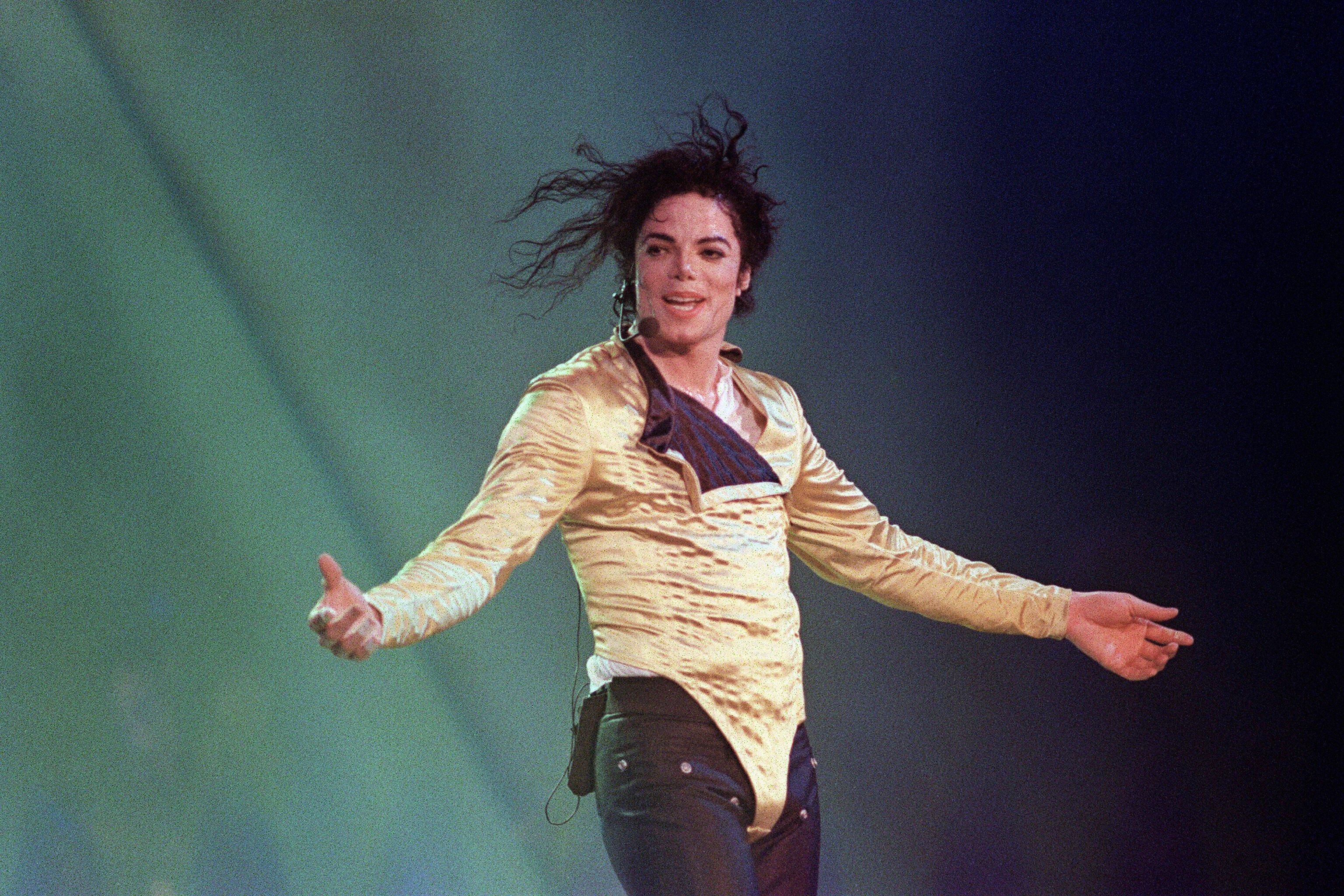
Photo: Francis Sylvain/AFP via Getty Images
news
On This Day In Music: Michael Jackson Passes Away In Los Angeles At Age 50
The music world suffered a catastrophic blow on June 25, 2009, when the King of Pop died in Los Angeles at just 50 years old. Fifteen years later, reflect on this momentous day.
Nearly 15 years since its release, it’s still wrenching to watch the documentary Michael Jackson’s This Is It — a glimpse of one of the greatest concerts that never happened.
Revisiting behind-the-scenes footage of the planned residency at London’s O2 Arena, it’s clear Michael Jackson was at the top of his game. The Kenny Ortega-directed film takes us through rehearsals, dancer auditions, costume design, and more, as the run of 50 shows loomed.
Despite any personal or medical issues the embattled King of Pop faced, he danced and sang terrifically. All 50 dates had sold out; after more than a decade off the road, This Is It was bound to be a momentous pop event.
But the residency would never happen, for the most tragic reason possible: on June 25, 2009, after returning home from a past-midnight rehearsal, Jackson passed away from acute propofol intoxication, administered by his personal physician, Conrad Murray. Jackson was 50.
The news rattled the world, causing major internet platforms including Google, AOL Instant Messenger, Twitter, and Wikipedia to be pushed to the breaking point with significant traffic spikes. The following year, Murray was convicted of involuntary manslaughter, and sentenced to four years in prison. (He was released after serving nearly two years, due in part to good behavior.)
“Our beloved son, brother, uncle and father of three children has gone so unexpectedly, in such a tragic way and much too soon,” read a statement from the Jackson family. “It leaves us, his family, speechless and devastated to a point, where communication with the outside world seems almost impossible at times.”
As Jackson's music sales spiked, Jackson’s memorial service was held on July 7, 2009, at the Staples Center. Berry Gordy, Brooke Shields, and Smokey Robinson offered eulogies, and an all-star lineup — including Mariah Carey, Stevie Wonder, Lionel Richie, and others — performed Jackson’s iconic songs.
Of course, true legends never die — but a world without the King of Pop has been a little dimmer. On this day in music, crank up Thriller or Bad, and remember one of the greatest entertainers who ever lived.
Explore More History-Making Moments In Music

On This Day In Music: Spice Girls Release "Wannabe," Their Iconic Debut Single

On This Day In Music: Michael Jackson Passes Away In Los Angeles At Age 50

On This Day In Music: Mariah Carey Releases Her Self-Titled Debut Album

On This Day In Music: "American Idol" Premieres On Fox Network

On This Day In Music: 2 Live Crew's 'As Nasty As They Wanna Be' Becomes First Album Declared Legally Obscene, Anticipates First Amendment Cases
